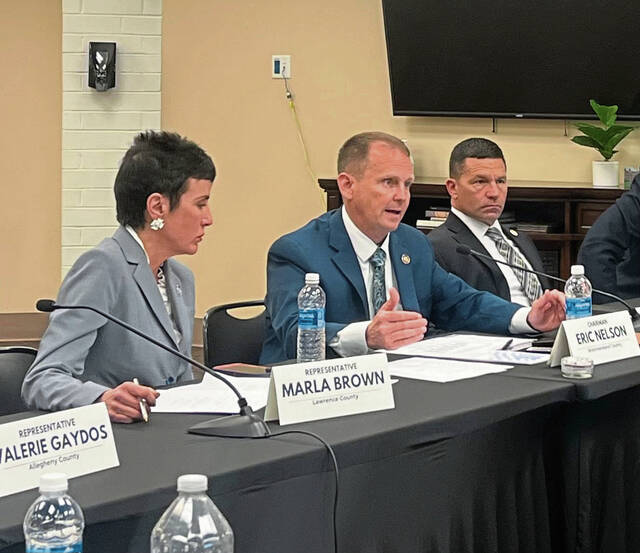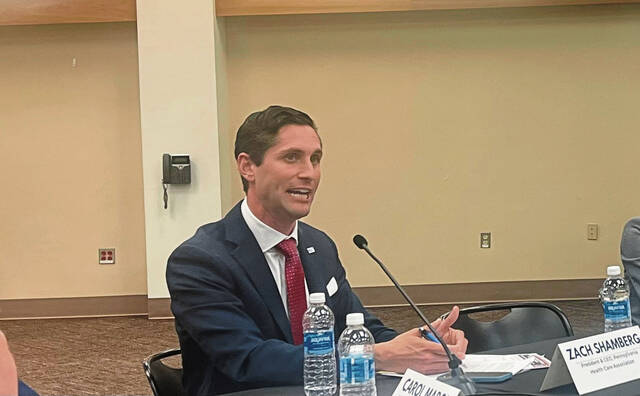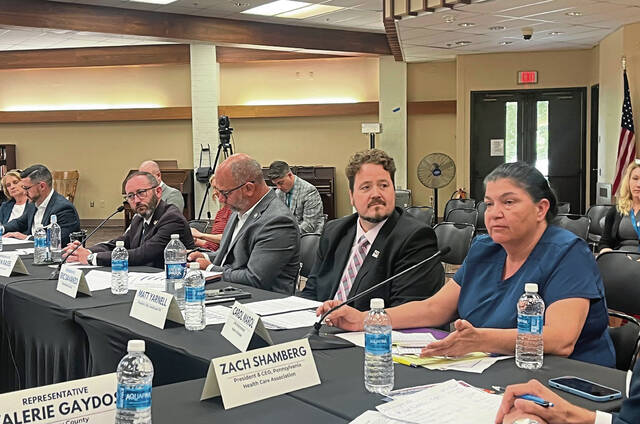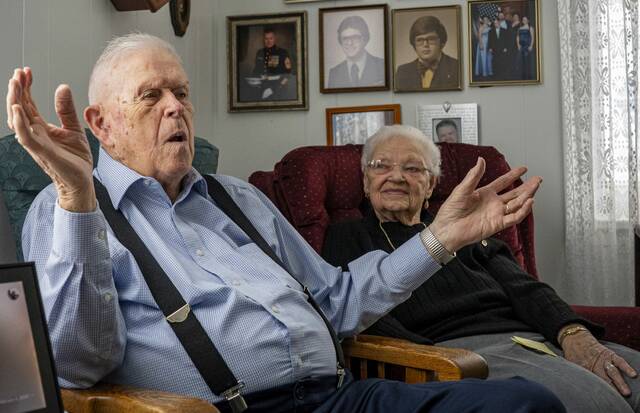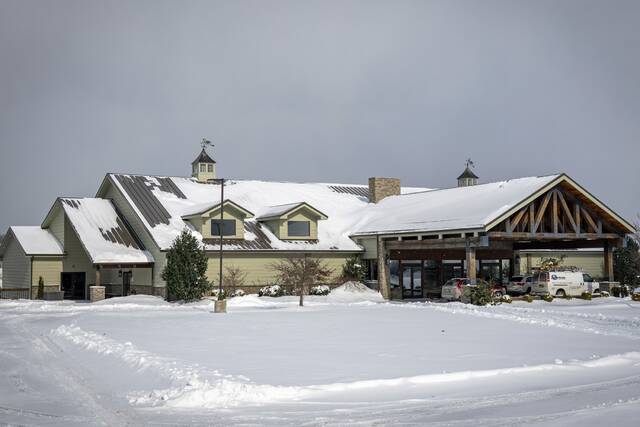Licensed practical nurse Carol Marol has been working at Westmoreland Manor for about 28 years, and laments that the quality of care at the nursing home is not as good as it used to be because of decreased staffing.
“When we are short-staffed, and when workers are not paid competitive wages, then the residents feel like garbage — like they are not worth it,” Marol said.
Marol teared up as she gave her account of the current state of the nursing home at a roundtable discussion Thursday afternoon at the county owned facility in Hempfield.
Marol said that she and other workers at Westmoreland Manor get frustrated because they are unable to provide the care and companionship they believe the residents deserve. She said she spoke with workers from other homes who have actually brought in their own food to feed their residents.
State Rep. Eric Nelson, R-Hempfield, the subcommittee chair for Health and Human Services, organized the discussion with a goal of figuring out where to best spend the funds provided by the Pennsylvania Community Health Choices program.
The program covers people age 21 and older and have both Medicare and Medicaid or receive long-term support through Medicaid because they need assistance with personal tasks, according to the Commonwealth of Pennsylvania’s website.
When the program began in 2020, there were $3.5 billion in costs for an average of 377,000 participants. Now, there are $6.8 billion in costs for 391,000 participants.
Nelson said that the conundrum he and the other representatives that were present face are determining where the money is being spent. Throughout the past three years, 30 senior facilities have closed in Pennsylvania and others struggle to recruit workers. This is occurring as the senior population within the state grows. According to the Commonwealth of Pennsylvania’s website, it is projected by 2030 that 1 in 3 Pennsylvanians will be age 60 and over.
“Our goal today is really to help drive discussion and listen so that we can better understand specifically the focuses of the Community Health Choices Program,” Nelson said.
Issues faced
Redstone Highlands has three senior living communities in Westmoreland County and provides care to more than 1,000 patients each year, said Vicki Louks, vice president and chief operating officer.
In their 77-bed nursing home they have 30 people who are recipients of the Community Health Choices program. They provide about 13,000 days of care through the program at a cost of $465 per patient per day.
The program pays the facility $306 per patient per day, resulting in a loss of $158 per patient per day.
John Andursky, chief financial officer at Westmoreland Manor, said an issue Westmoreland Manor is navigating is the staffing ratio mandates. They require facilities to have one certified nursing assistant per resident during the day shift, one certified nursing assistant per 11 residents in the evening shift, and one certified nursing assistant per 15 residents during an overnight shift. This requires Westmoreland Manor to pay overtime and provide bonuses for staff to pick up extra shifts.
Matt Yarnell, president at Service Employees International Union Healthcare Pennsylvania, said that staffing ratios have been improved, but there is still work to be done because workers are sometimes taking care of up to 20 patients at a time.
Janessa Knepshield, a home health care worker for Community Resources for Independence, said if it was not for financial help from her husband, she wouldn’t be able to continue to do this work because of the low pay.
“If I take a day off … there is no coverage for the person that I am taking care of,” Knepshield said. “It’s hard to want to take a personal day.”
There were no state Department of Human Services representatives present at the roundtable event. They received the invitation last week and were unable to attend due to it being short notice, according to Brandon Cwalina, press secretary for the department. Westmoreland County Commissioners Sean Kertes and Doug Chew did attended the session.
Steps to solutions
Rep. Jim Struzzi, R-Indiana, questioned whether to change the system completely.
“You have this program that has been around for about five years, and it doesn’t seem like we are getting the results we should be getting,” Struzzi said.
Various solutions were discussed, including working toward decreasing administrative burdens, reevaluating regulations that create distress for facilities and allowing for more flexible staffing ratios.
“I think we really do need to take a hard look at this system five years in, and find out if it is possible to fix it. Or do we need to look at a different way to deliver the essentials that our residents here in this commonwealth need?” Struzzi asked.


